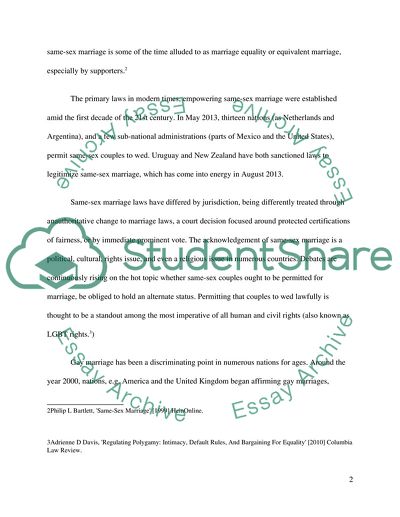Cite this document
(“The Marriage (Same Sex Couples) Essay Example | Topics and Well Written Essays - 5000 words”, n.d.)
Retrieved from https://studentshare.org/law/1655018-the-marriage-same-sex-couples
Retrieved from https://studentshare.org/law/1655018-the-marriage-same-sex-couples
(The Marriage (Same Sex Couples) Essay Example | Topics and Well Written Essays - 5000 Words)
https://studentshare.org/law/1655018-the-marriage-same-sex-couples.
https://studentshare.org/law/1655018-the-marriage-same-sex-couples.
“The Marriage (Same Sex Couples) Essay Example | Topics and Well Written Essays - 5000 Words”, n.d. https://studentshare.org/law/1655018-the-marriage-same-sex-couples.


